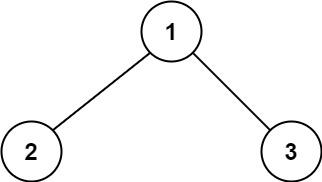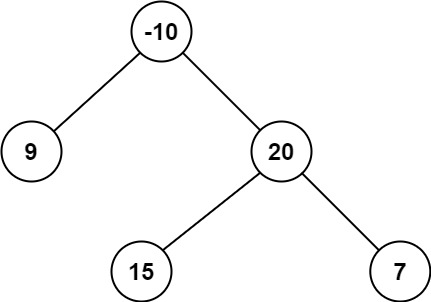Binary Tree Maximum Path Sum
**A path in a binary tree is a sequence of nodes where each pair of adjacent nodes in the sequence has an edge connecting them. A node can only appear in the sequence at most once. Note that the path does not need to pass through the root.
The path sum of a path is the sum of the node's values in the path.
Given the root of a binary tree, return the maximum path sum of any non-empty path.**
Example 1:

Input: root = [1,2,3]
Output: 6
Explanation: The optimal path is 2 -> 1 -> 3 with a path sum of 2 + 1 + 3 = 6.
Example 2:

Input: root = [-10,9,20,null,null,15,7]
Output: 42
Explanation: The optimal path is 15 -> 20 -> 7 with a path sum of 15 + 20 + 7 = 42.
Constraints:
The number of nodes in the tree is in the range [1, 3 * 104].
-1000 <= Node.val <= 1000
2 Answers
int maxVal = INT_MIN;
int helper(TreeNode* root){
if(root==NULL){
return 0;
}
int maxGainInLeft = max(helper(root->left),0);
int maxGainInRight = max(helper(root->right),0);
int currSum = root->val + maxGainInLeft + maxGainInRight;
maxVal = max(maxVal,currSum);
return root->val + max(maxGainInLeft,maxGainInRight);
}
int maxPathSum(TreeNode* root) {
helper(root);
return maxVal;
}